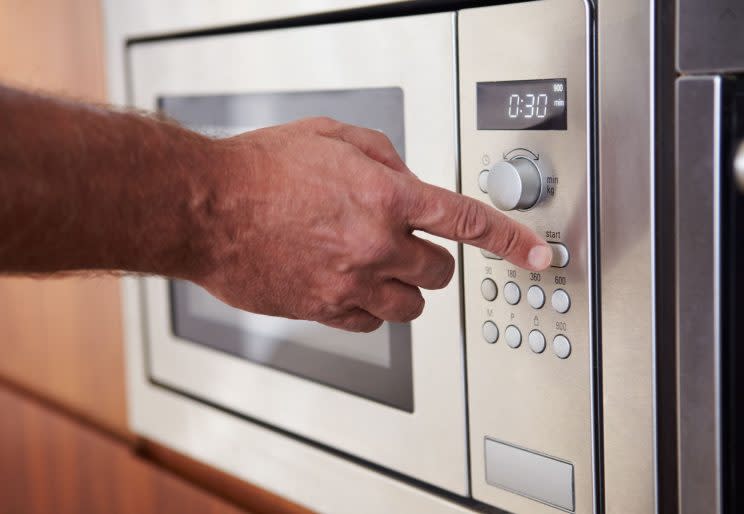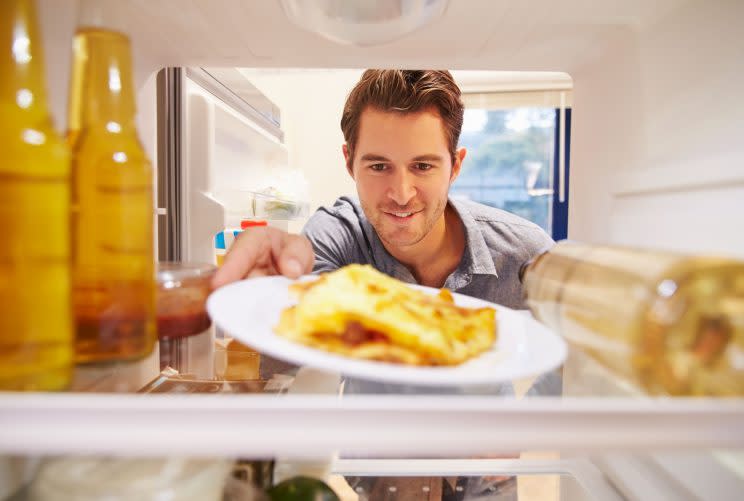Seven foods you should never microwave - by food experts

The microwave is one of those essential pieces of technology which separates man from the beasts – and a god-given gift to single people and parents.
But there’s some foods which really don’t benefit from being nuked in the microwave – including some foods most of us sling in there without a second’s thought.
Yahoo Style spoke to some experts to get the lowdown.
Why you should never store potatoes in the fridge
13 tantalising recipes for peanut butter addicts
Andrew D Scott, owner of Victus Consultancy, says, ‘Microwaves may be quick, easy and convenient. But, careful! The end result with some foods is simply not worth the speed, in terms of taste, nutritional value and even the harm it could do to you.’
Broccoli
Cooking broccoli in a plate with water can mean that a lot of the nutrients end up being lost.
Andrew D Scott, owner of Victus Consultancy, said, ‘Broccoli cooked in a microwave with some water loses up to 97% of its beneficial antioxidants.
There’s a solution, though – instead, microwave the broccoli in a covered dish, with less fluid, and it should retain more antioxidants.
Pasta
Microwaves cook unevenly – so if you use them to reheat pasta, it can end up dried-out and unappetising.
Chef John Hayden, at Clayton Hotel Sligo says, ‘Don’t microwave pasta. Pasta should be reheated in a saucepan over a medium heat rather than put into the microwave. You should also stir it for the duration and add oil.’
Water
You face a much higher risk of scalding if you microwave water than if you heat it up on the hob – so don’t be lazy.
Andrew D Scott, owner of Victus Consultancy, said, Do not microwave water. When you boil water traditionally, bubbles form, which helps the cooling process. This doesn’t happen in a microwave so the risk of scalding is much higher.
Meat
Susanne Ekstedt, a researcher at the at the SP Technical Research Institute of Sweden in Gothenburg, says that using the microwave to defrost food is a no-no – as it tends to damage the meat as it warms up. the best way to do it is to use water.
Seal the food properly in plastic, and it warms up faster using water (because water is more conductive) – meaning it tastes better, says Ekstedt.
Ekstedt says, ‘This is something food scientists have known to be true for a long time now. But this knowledge is mostly confined to the food industry. Most people don’t seem to be aware of this.’
Eggs
Scrambled eggs are great in the microwave – but don’t try boiling eggs in their shell, as they can expode – either in the microwave, or in your face as you try to eat them.
Andrew D Scott, owner of Victus Consultancy, says, ‘Don’t try hard boiled eggs – the steam has nowhere to escape to and will create a terrible smell.’
Chillies
Andrew D Scott, owner of Victus Consultancy, says, Not only might hot peppers catch fire in a microwave, they release chemicals which will sting your eyes and burn your throat which is not nice.
Takeaway

This one isn’t a hard-and-fast rule – but microwaving takeaway can be risky, and if you do do it, make sure to stir VERY thoroughly.
Food expert Michael Mosley says that many of us unwittingly take risks when reheating food, in a video for Britlab.
Crucially, the whole dish needs to be heated to 82 degrees Centigrade to be safe – otherwise there could be ‘pockets’ of bacteria.
That means you should always stir takeaway, and ensure it’s very thoroughly heated. Mosley also warns that takeaway should never be heated more than once.
Do you think we missed any? Tweet us your thoughts at @YahooStyleUK.



